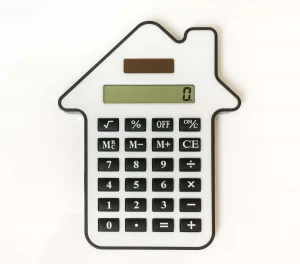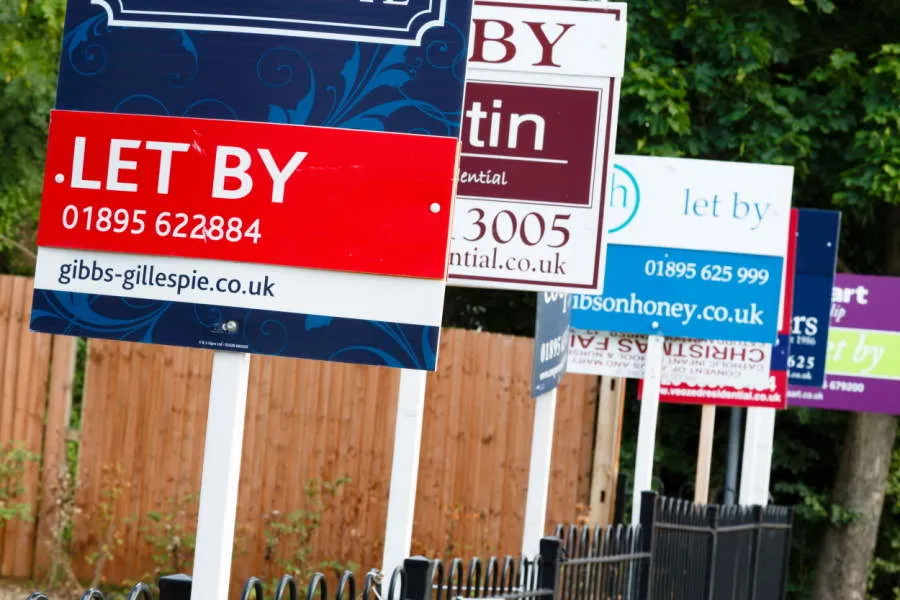Five of the leading industry trade bodies have united to come up with a new set of guidelines for landlords and tenants if being able to afford housing costs becomes impossible due to the Coronavirus pandemic.
The guide, which has been published by the National Residential Landlords Association (NRLA), details the ways in which landlords and tenants can help each other throughout this crisis. This includes three ways in which Landlords could offer support to their tenants who are struggling financially.
Talking
The guide starts out with something that Angel Advance have always recommended when a tenant struggles financially; talking. As we mentioned in March if a tenant in struggling with their rent they should talk to their landlord. This NRLA guidance states that if a Landlord notices their tenant is struggling, they should proactively talk to them. Being open and honest about your financial situation from the start will make it easier to deal with issues later on. The Landlord or their tenants ignoring what is going on will only every make the situation worse. According to a recent survey which was published by the NRLA 90% of Landlords were able to offer some sort of financial assistance to their tenants when they became aware that they were struggling to pay their rent.
For most tenants, the impact on their finances will be temporary and they may be worried about talking to their landlord. By proactively engaging compassionately with them, the landlord can not only help to reduce their money worries, but also ensure both parties are committed to working together to ensure any arrears are managed afterwards, allowing the tenancy to continue for a long time after the pandemic ends.
It is also important for both the Tenant and the Landlord to keep and share records of the conversations and agreements that they have had. This will help both parties have an understanding of what each other is doing if any arrangements are agreed upon. If a tenant prefers to communicate by phone or text message, then the landlord should send a follow up letter or email to outline what has been discussed. If a tenant disagrees with what was stated in the letter or email, they should send their own corrected version within a reasonable timeframe. The NRLA judges this timeframe to be between 7 and 14 days.
Keeping records will also mean that if there is any need for court action or mediation in the future, the tenant and landlord can demonstrate what steps have been taken by both parties to try and keep on top of any arrears.
Managing arrears
Once both the landlord and the tenant have an understanding of the about the financial difficulties, there are a number of ways which the landlord can support their tenant. This can be through direct financial support or by providing information on how to access financial support.
Where the tenant has spoken with the landlord about financial help, there are a few different ways that rent could be reduced temporarily.
Rent reduction
The most obvious way would be for the landlord to reduce the rent for the duration of the crisis. This can be agreed on the basis that the reduction could be deferred meaning that the reduced amount can be paid back at a later date, or if the landlord is able to, they could waive the reduced amount completely. It wouldn’t be expected that a new contract would need to be agreed or there be any need to have a face to face meeting. It can be arranged by email if this is convenient however, the email agreement should be clear on the terms of the rent reduction. If the reduced amount is to be paid back then this should be clearly stated and agreed by both parties.
Another option would be for the landlord to consider reducing the rent permanently. If the tenant’s income is reduced long term as a result of coronavirus they will ultimately look to leave the property if they cannot afford to live in it. By offering a rent reduction that is less than the cost of re-letting, a landlord can save money and sustain a tenancy long term. Similarly, if market rents decline in the area then a rent reduction to the new rate may be an attractive option. If a landlord does decide to offer a permanent rent reduction, they are best advised to speak to their mortgage or insurance providers first to ensure the best way to proceed.
The landlord may also agree that instead of the tenant having to pay the reduction back, at the end of the tenancy the reduction could be taken from the deposit meaning that less of the deposit is returned to the tenant. If landlords choose this option they should be aware that the deposit will not be able to cover any damages to the property.
 Deferring payment entirely
Deferring payment entirely
Alternatively, in some circumstances the preferred option might be to agree to not chase the tenant for the rent, waiting for them to pay the rent in full at a later date. For example, tenants who qualify for the self-employment grant or those waiting for Universal Credit payments may have to wait some time for their payments to come through.
As the rent is still due, landlords can simply inform the tenants that they understand there will be a wait for payment and that they will expect it when their claim or grant has been processed.
In these cases, both the tenant and landlord should continue to stay in touch in case of any delays on the initial payment, or if the tenant needs any support with welfare applications.
Similarly, the landlord may agree that at the end of the tenancy any rent arrears will be taken from the deposit with the tenant’s agreement.
Offering support with welfare applications to tenants
The best way to avoid worries about rent repayments is to ensure that the rent can still be paid. The Government’s own guidance on the issue of rent is that where it can be paid it should be, so it is in everyone’s interest to ensure that everything is being done to keep up with the rent repayments.
Like the majority of the population, many private rented sector tenants will have no prior experience of making Universal Credit or other benefit claims. These households are likely to not feel confident about making the application themselves and they may not know everything they are entitled to at this time.
If a tenant has gone into arrears then the landlord can help by contacting them to discuss why the arrears have happened, and what their circumstances are. If the landlord has experience with making Universal Credit claims, or helping others to do so, they may be able to offer to assist their tenants with making an application. Likewise, if arrears start to build, landlords may be able to assist by discussing their tenant’s change of circumstances and helping to identify benefits that may be available based on their experience of letting.
However, as tenants who rent through a private landlord rarely go into arrears, most landlords will not have experience with making applications. In these circumstances, the important thing is that the affected household gets the right information so they can progress any applications as fast as they possible.
Landlords can help by signposting their tenants to useful advice services such as the government’s universal credit, or employment support allowance website as well as the government’s self employment help scheme website if they are self employed.
If you’re a landlord and are worried about reducing the rent you charge, it is important that there is also help available to you, for example, you can ask your bank for a mortgage holiday. We’ve detailed what the Financial Conduct Authority have done to support homeowners here
Managing arrears repayments sensibly
Budgeting during the crisis
Not every household will need assistance budgeting, but in any situation where somebody has their income reduced, the best advice is to consider as early as possible what changes should be made to their budget. Budgeting will allow you to see what non-essential spending can be cut back. Bills such as utilities, council tax and rent should be paid as a priority, as failing to pay these may lead to serious consequences. Knowing how much someone spends will mean that tenants and landlords will be able to manage rent arrears more successfully. Many landlords and tenants alike already do this and will be familiar with the process for creating a budget and, although planning a budget can be time consuming and will require accurate records of spending, it will be worth it. Not only will it help reduce the stress of debt, but it can form the basis for a reasonable repayment plan once the tenant’s finances are back to normal, allowing them to free themselves from debt earlier.
Accurate information is key to budgeting. Ideally individuals should refer to at least their last three months of credit card and bank statements, as well as their shopping receipts for regular spending.
These can be used to add up how much they normally spend each month and compare it to the income they expect to receive in future months. Once this budget plan has been completed, the households may wish to refer to it in discussions with their landlord if they are unable to pay all the rent.
It can even be shared with the landlord to demonstrate why a tenant is unable to keep with their full rent payment. If a tenant does this, then there should be no need for a tenant to supply the landlord with receipts or statements to evidence spending. It would be useful to keep these for future reference though.
Agreeing a repayment plan
Once a budget has been prepared, both parties will be able to discuss a sensible repayment plan for the future. This repayment plan should detail the amount to be paid each week or month and ideally be signed by both parties to show they have agreed to the terms of the plan.
When considering the amount of time required to pay the arrears it is important that both parties are realistic. A balance must be struck between relieving the household of debt swiftly and whilst not threatening to increase any financial hardship on the tenant. Some tenants will want to clear any arrears as soon as possible, but it’s important for them no to pressure themselves in to paying an amount they can’t afford.
The key thing to consider is how much is available in the tenant’s budget after essential living costs have been met. A tenant who is furloughed may suffer a temporary loss of income but recover quickly when their job resumes. Depending on their other essential spending, with sensible budgeting they may be able to pay off any accumulated arrears quickly. By contrast, if a tenant loses their job or has to continue on reduced hours, their medium to long-term income is likely to be lower than before. As a result, any repayment plan would need to be structured over a longer period.
In these circumstances, landlords should be constructive with their tenants to arrange a sensible repayment plan that allows the tenant to pay back what they can afford in a reasonable timeframe for both parties. Offering a payment plan that doesn’t suite a tenant’s budget is likely to make the tenant feel pressurised and could make constructive discussions difficult.
Sustaining the tenancy long-term should be the goal of these repayment arrangements for both parties. Rent arrears are normally a rare occurrence for private landlords, but when it does happen repayment is unlikely if the tenancy is ended. If both tenant and landlord stick to a sustainable long-term plan to pay back the arrears, the landlord can recoup some of the lost income and there is no need for tenancies to come to an end.
Mediation
While this guidance is based on the principle that tenants and landlords working together constructively can come to a sensible arrangement for paying any arrears, there will be times where an agreement cannot be reached.
In these cases, it may be worth considering a mediation service.
Mediation services can help to set up an agreement that is legally binding on both parties. However, this service costs money and it is in the interests of both parties to work together to avoid having to reach this point.
Although this guidance is aimed at landlords, it is important for tenants of private landlords to understand that their landlords should be able to offer them help in these difficult times.
If you are a customer of Angel Advance and feel that you need to amend your budget, please log in using the log in button at the top of the page.
If you’re not a customer of ours and you’re experiencing issues with paying your bills and would like further advice, please click on the link below.

